English text below
Российская власть любит обвинять другие страны в «русофобии». В действительности же самой русофобской является диктатура московского Кремля, которая не позволяет свободно развиваться всем русским регионам.
Идея о том, что Россия – это не «просто страна», а целая уникальная цивилизация, есть основа российского фундаментализма во всех его видах. Но странным образом, большинство адептов этой концепции не понимают ее смысла и пытаются впихнуть ее в государственно-национальный шаблон. Однако если русские – это не «национальность», а особая цивилизация, то и Россия есть единство более высокого ранга, чем государство-нация. Значит, она по статусу сопоставима не со страной, типа Германии и Франции, а с континентом – со всей Европой как целым, или со всем Исламом, со всей Античной цивилизацией.
Цивилизации, в отличие от наций, по своему устройству многополярны, и эти полюса связаны друг с другом сложной системой горизонтальных связей, помимо какого-то единого центра – которого, кстати, может и не быть вовсе. Ну какую страну можно назвать «центром» англосаксонской, испанской или арабской цивилизаций? Важнейшая особенность цивилизации – внутреннее многообразие, которая собственно и делает ее чем-то более масштабным, чем государство-нация. В этом многообразии цивилизация черпает свою силу, и именно оно составляет ее главный адаптивный ресурс. Когда один из центров цивилизации терпит поражение, на его место приходит другой, с новой версией цивилизационного проекта.
Московские идеологи любят говорить о многополярности «в мировом масштабе», но как только речь заходит о России, наступает молчание. Зная о том, что многополярность – необходимый атрибут цивилизации, им приходится изощряться. Например, они объявляют цивилизацией всю Россию как географическое понятие, включая множество малых народов, которые живут на этой территории. Формально все в порядке: в Европе четыре десятка коренных народов, а у нас – больше сотни, – да это не цивилизация, а целая планета! И вот уже все самостоятельные культуры, и даже целые цивилизации, исторически оказавшиеся в поле влияния русской, выдаются за ее собственные системные полюса. Для большей убедительности моделируется концепция «России-Евразии», где собственно русская культура сжимается до единичного атома, наряду с другими такими же. Так счастливо избегается вопрос о колоссальном потенциале разнообразия, который скрыт в этом «неделимом атоме».
Здесь не место обсуждать историю евразийской доктрины, кем и для какой цели она была создана, – важно то, во что она превратилась сегодня. Кремлевское евразийство – это попытка создать такие весы, на которых стая мышей могла бы уравновесить слона, чтобы заставить его почувствовать себя мышью. Прицел этой концепции – отнюдь не уважение к культурам малых народов России, а стремление подыскать русским такую общность, в рамках которой они были бы «всего лишь национальностью», однородной массой, от имени которой могла бы «говорить и показывать Москва».
«Потерянное многообразие» российской цивилизации они хотят списать на этнические меньшинства, и ими же ограничить поле культурной инаковости, оставив 70 регионов с преобладанием русского населения в роли культурных колоний Москвы.
С одной стороны, декларируется, что Россия – страна многих народов и множества разнообразных культур. Но с другой стороны, право на разнообразие жестко ограничено этническим принципом и не распространяется на 90 процентов населения. Несколько тысяч эвенков имеют право на собственную культурную идентичность – и это замечательно. Но почему полтора миллиона жителей Рязанской области такого права не имеют? Потому что бог дал им несчастье родиться русскими? История Рязани, как и многих других русских земель, уходит корнями в такую древность, где не было еще ни Москвы, ни России. Почему же рязанцы сами не могут говорить от своего имени, не могут влиять на общенациональный консенсус, не могут занять в нем свою собственную, уникальную, узнаваемую нишу? Куда подевались Новгород, Псков, Тверь, Ростов, Нижний, – великие, славные и непохожие один на другой центры русской земли, почему на их месте – серая обезличенная равнина? Право на существование имеет только один вариант «русскости» – тот, который все получают из Москвы.
Вопрос, которого одинаково избегают как московские западники, так и московские евразийцы: если Россия по своему потенциалу – цивилизация, то не должна ли она быть внутри себя не менее сложной и многополярной, чем любая из известных цивилизаций? Из логики этой концепции следует, что любой русский регион способен по уровню своеобразия, уникальности, по своему самосознанию дойти до уровня стран и регионов Европы. Любой может обрести собственное лицо и собственный голос. Вместо одной русской культуры и стиля жизни, могла бы существовать мощная и сложная система из 70 русских культур, столь же богатых и уникальных, из 70 русских национальных образов жизни, 70 русских идентичностей.
В силу исторических условий, цивилизация свернулась в нацию и один вариант русского подавил все остальные варианты. Некоторые из них – скажем, северорусский, или новгородский, сопротивлялись дольше других и оставили в истории значительный след. О Новгороде, из-за его прямых связей с Европой, мы еще что-то знаем, о других регионах – почти ничего. Уже в послепетровское время власти провели несколько масштабных «зачисток» в региональных архивах, с целью уничтожить все, что не укладывается в официальную версию русской истории.
Альтернативные модели русского прервали свое развитие не потому, что качественно уступают московскому, а в силу тогдашней военно-политической конъюнктуры. Все эти самобытные Руси – Новгородская Русь, Псковская Русь, Рязанская Русь, Тверская Русь, Северская Русь и т.д. – «свернулись» и обезличились не сами собой, а только после многочисленных военных погромов, опустошений, систематического геноцида, перемещения элиты, крепостного рабства. Наконец, после целенаправленного уничтожения религиозного, исторического и культурного наследия немосковской ориентации, проводившегося с XVI по XX век. С той же Рязанью Москва воевала несколько столетий, – дольше и кровопролитнее, чем с Чечней, – и опустошала эту землю сильнее, чем татары. Новгород был разгромлен как вражеская столица. Северская земля была укрощена во время Смуты. В Поволжье и на Урале кровавую баню устроили уже при Романовых, в ходе подавления восстаний Разина и Пугачева.
Унифицированная одинаковость России от Балтики до Тихого океана – это ни в коем случае не «естественный продукт русской души», а следствие весьма жестокой многосотлетней политики центральных властей. Новгород, Киев, Владимир, Рязань, Тверь, Смоленск и другие древнерусские города имели свои собственные иконописные и летописные традиции, языковые диалекты, особое искусство и фольклор – все это быстрыми темпами вело к возникновению России как континента, по многообразию даже превосходящего европейский. Вместо этого железом и кровью была создана унитарная система, нивелирующая все различия.
Московские конкистадоры пронеслись по русскому миру со свистом и гиканьем, вытаптывая все на своем пути, как испанцы в Америке. Это оправдывают необходимостью объединения перед лицом общих врагов. Но нужны ли такие «защитники», которые для своих страшнее, чем враги? Шведы, захватившие Новгород через полвека после Грозного, вели себя там гораздо приличнее, чем москвичи – не жгли, не насиловали, не пытали, не топили в Волхове мирных граждан. Возможно, без «объединения по-московски» внешние враги могли бы поработить Россию. Но само это «воссоединение» закончилось обращением в рабство основной массы русского населения, которая на много столетий попала под более жестокое иго, чем при татарах. А финал этой истории у нас перед глазами: вместо многополярной, богатой возможностями системы мы имеем однородное обезличенное пространство, потерявшее волю к жизни и неуклонно деградирующее. Которое молча проглотило и кремлевские решения о ликвидации выборности своей власти.
Возвращение русской цивилизации утраченных возможностей – соблазн, способный пробудить волю к жизни. Вместо одного полюса – 70 новых. Адепты Московии задают удивленный вопрос: «А зачем нам нужно еще 70 русских проектов, 70 новых русских культур? Разве недостаточно нынешнего музея восковых фигур?» В этом вопросе выдает себя воля к смерти: а с точки зрения жизни рождение нового, усложнение, разнообразие – абсолютное благо. Для нормального сознания бытие – лучше, чем небытие. Фактически, этот вопрос звучит так:
Зачем вам, суверенным регионам, быть вообще? Ваша роль – поставлять нам ресурсы и свежую кровь. В качестве полноценных субъектов истории вас не нужно, вы нам будете мешать, вы отодвинете нас в сторону.
Чтобы вернуть себе человеческое достоинство, русские, живущие в различных регионах, должны обрести собственное лицо и построить там, где они живут, полноценную жизненную среду. В каждом регионе это будут делать по-своему. Такой проект способен породить множество новых сфер приложения жизненной энергии, индивидуальных и командно-корпоративных.
Sergey Kornev
Russia’s Post-Moscow Civilisation
Note from the editors of Region.Expert: This article was written in June 2016. The text was translated from the original Russian by Kerkko Paananen.
The Russian government likes to accuse other countries of «Russophobia.» The truth is that the most Russophobic party of all is the Kremlin dictatorship in Moscow, which refuses to allow Russian regions to develop freely and independently.
The idea that Russia is not merely «just a country» but an entire civilisation lies at the core of Russian fundamentalism in all its manifestations. However, most adherents of this concept fail to grasp its true meaning and attempt to fit it into the framework of a nation-state.
If Russians are not merely a «nationality» but a separate civilisation, then Russia is an entity of a higher rank than a nation-state. Consequently, its status is comparable not to a single country like Germany or France, but to a continent — such as all of Europe, the Islamic civilisation, or the civilisations of classical antiquity.
Civilisations, unlike nations, are inherently multipolar. Their poles are interconnected through a complex system of horizontal links, independent of any single centre, — which, incidentally, may not even exist. Can we identify any single country that we could designate as the centre of Anglo-Saxon, Spanish, or Arab civilisation?
The most significant attribute of a civilisation is its internal diversity, which makes it something greater than a nation-state. A civilisation draws its strength from its diversity, which constitutes its primary adaptive asset. When one centre of the civilisation is defeated, it is replaced by another, giving rise to a new version of the civilisational project.
Muscovite ideologues like to talk about multipolarity «on a global scale,» but as soon as the discussion turns to Russia, they fall silent. Recognising that multipolarity is an essential attribute of civilisation, they have to resort to creative interpretations.
For instance, they assert that the entire geographical concept of Russia, encompassing the numerous small ethnic groups inhabiting its vast territory, constitutes a civilisation. On the surface, this argument may seem plausible: Europe is home to around forty indigenous peoples, while Russia boasts more than a hundred. That is not just a civilisation but an entire planet!
Additionally, all the various independent cultures and civilisations that have historically ended up in the Russian sphere of influence are portrayed as systemic poles of the Russian civilisation.
To add further complexity, Muscovite ideologues have concocted the concept of a «Russian Eurasia,» wherein Russian culture proper is reduced to a single atom, alongside others of the same kind. However, this concept blissfully ignores the enormous potential for diversity that lies hidden within this supposedly «indivisible atom.»
This is not the place to delve into the history of the Eurasian doctrine, its origins, or its intended purpose. The critical question is what the doctrine represents today. The Kremlin’s Eurasianism seeks to establish scales on which a pack of mice can balance an elephant, so it can feel like a mouse.
The objective of this concept is not to respect the cultures of the small ethnic groups within Russia, but rather to conceptualise a community of Russians where they are reduced to «just a nationality» — a homogeneous mass, in whose name Moscow can broadcast.
They want to reduce the «lost diversity» of the Russian civilisation and cultural otherness to ethnic minorities, thereby effectively transforming the 70 regions with predominantly Russian populations into mere cultural colonies of Moscow.
On the one hand, Russia proclaims itself a multinational country with many diverse cultures, yet on the other hand, the right to diversity is strictly limited to ethnicity, excluding 90 percent of the population. A few thousand Evenks have the right to their own cultural identity — which is fantastic. However, why are the one and a half million people in the Ryazan region denied that same right? Is it because they had the misfortune of being born Russian?
The history of Ryazan, like that of many other Russian lands, traces back to ancient times when neither Moscow nor Russia existed yet. Why can the people of Ryazan not speak for themselves, exert influence on the national consensus, and carve out their own unique and recognisable niche?
What has become of Novgorod, Pskov, Tver, Rostov, and Nizhny Novgorod — the once great, glorious, and distinct centres of the Russian land? Why have they been replaced by a grey monotony devoid of individuality? Only one version of «Russianness» is allowed to exist — the one prescribed by Moscow.
One question that both Westernisers and Eurasians in Moscow overlook is: If Russia is a civilisation in terms of its potential, should it not be internally as complex and multipolar as any other known civilisation?
According to this concept, any Russian region should have the capacity to achieve the same level of originality, uniqueness, and self-awareness as the many countries and regions in Europe. Each region should be able to develop its own personality and find its own voice. Instead of one single Russian culture and lifestyle, there could be a robust and intricate system of 70 Russian cultures, equally rich and distinctive, representing 70 different Russian identities.
Owing to historical circumstances, the Russian civilisation solidified into a nation, with one particular variant of Russian identity suppressing all others. Some of these variants, such as the North Russian or Novgorodian, persisted longer than others and left a significant mark in history.
We still know something about Novgorod thanks to its direct links with Europe, but we know next to nothing about many other regions. Following the reign of Peter the Great, the authorities conducted several large-scale purges in regional archives with the aim of erasing everything that did not align with the official version of Russian history.
The development of alternative models of Russian identity was disrupted not because they were inherently inferior to the Muscovite model, but due to the prevailing military and political circumstances at the time. All these various original Russias — the Novgorod Republic, the Pskovian, Ryazan, Tver, Severian principalities, and so on — collapsed and lost their individuality not of their own accord, but as a result of numerous military invasions, devastation, systematic genocide, displacement of the elite, serfdom, and the deliberate destruction of non-Muscovite religious, historical, and cultural heritage from the 16th to the 20th century.
For instance, Moscow waged war against Ryazan for several centuries — much longer and bloodier than against Chechnya — and inflicted more devastation than the Mongol-Tatars ever did. Novgorod was destroyed simply because it was considered an «enemy capital,» while Severia was subjugated during the Time of Troubles. The Volga region and the Urals suffered a bloodbath under the Romanovs during the suppression of Stepan Razin’s and Yemelyan Pugachev’s rebellions.
Russia’s uniform conformity, spanning from the Baltic Sea to the Pacific Ocean, is far from being a «natural product of the Russian soul.» Instead, it is a consequence of the very cruel policies pursued by the central authorities over several centuries.
Novgorod, Kyiv, Vladimir, Ryazan, Tver, Smolensk, and other ancient Russian cities once possessed their own iconographic and annalistic traditions, linguistic dialects, unique art, and folklore, swiftly transforming Russia into a continent more diverse than Europe. However, a unitary system was then forged through iron and blood to uproot and erase all differences.
The Muscovite conquistadors stormed through the Russian world with enormous speed, trampling everything in their path, much like the Spaniards did in America. This is supposedly justified by the need for unity in the face of common enemies. However, do we truly need such «defenders» who frighten their own people more than the enemies do? The Swedes, who conquered Novgorod half a century after Ivan the Terrible, conducted themselves far more decently than the Muscovites: They did not burn, rape, torture, or drown civilians in the Volkhov River.
Without the «Moscow-style unification,» external enemies could have perhaps conquered Russia, but this «reunification» led to the enslavement of the majority of the Russian population, which then had to endure a yoke more brutal than that of the Mongol-Tatars for many centuries.
The end result is that instead of a multipolar system brimming with opportunities, we now have a homogeneous, impersonal space that has lost its will to live and is gradually decaying. We have silently accepted the Kremlin’s abolishment of electoral government.
Returning to the Russian civilisation of lost opportunities is a temptation that has the potential of reigniting our will to live. Instead of one single pole, we would have 70 new ones. To this, supporters of a Moscow-centric Russia ask: «Why do we need 70 more Russian projects, 70 new Russian cultures? Is the current wax museum not enough?» This question reveals a will to die.
From the point of view of life, the birth of something new, complex, and diverse is an absolute good. For a normal state of consciousness, to be is better than not to be. In reality, the question that they are posing is: «Why should you, sovereign regions, exist at all? Your role is to supply us with natural resources and new blood. We do not need you as independent agents of history. You will stand in our way, you will lead us astray.»
To reclaim their human dignity, Russians living in different regions must discover their own identity and construct a coherent living environment in their respective areas of habitation. Each region will pursue this in its own manner. Such a project has the potential to generate many new areas of vitality, both individual and collective.
* Sergey Kornev is a Russian philosopher and theoretician of Russian regionalism.
_____________________________________________________
Подписывайтесь на Телеграм-канал Регион.Эксперт — https://t.me/regionexpert
Поддержите независимый регионалистский портал — https://gogetfunding.com/region-expert-readers-support

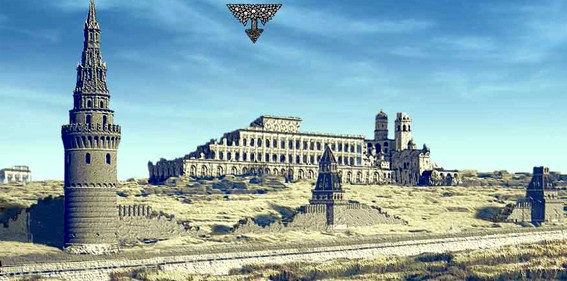


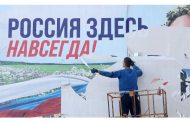
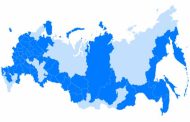







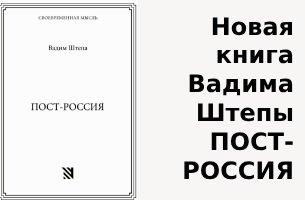



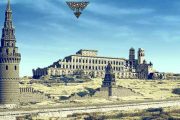

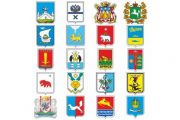

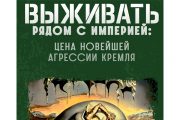







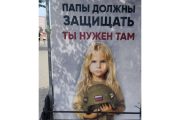
2 Comments
Pingback: Цивилизация цинизма | Регион.Эксперт
Pingback: Московская вирусная атака и оборона Рязани | Регион.Эксперт